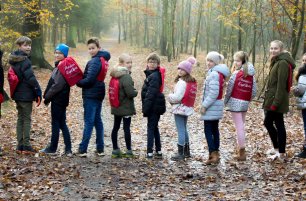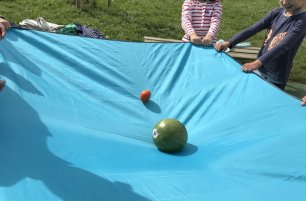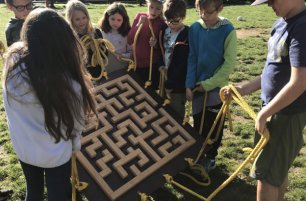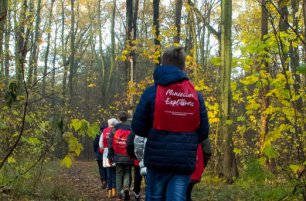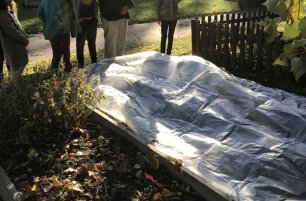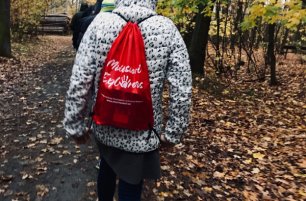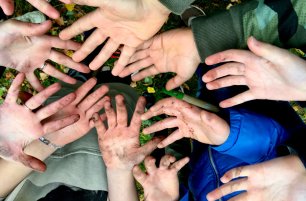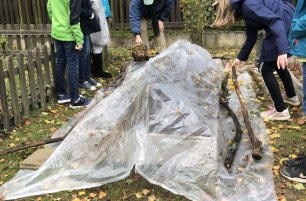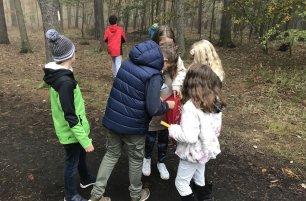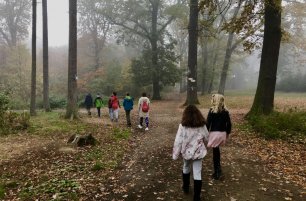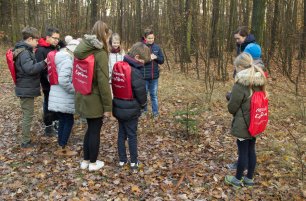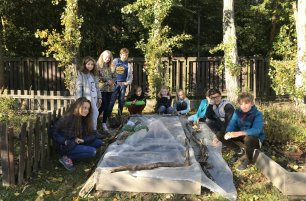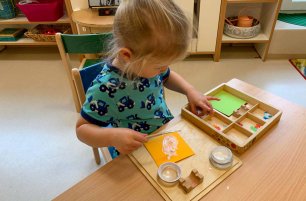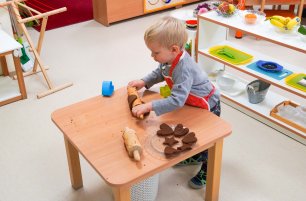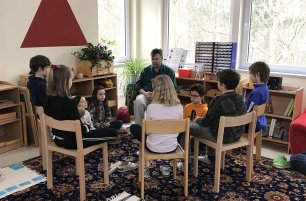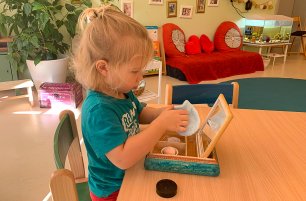Mindful Walks and Experiential Learning in Elementary
Maria Montessori used to walk through the forests in India pulling leaves from trees to teach about their function and structure, digging in the soil to demonstrate the ubiquitousness of life, examining root systems and connecting them to academic ideas.
Following Dr. Montessori’s example, we are committed to providing an environment where our students learn about nature out in the natural world, not just from abstract materials in the classroom. Montessori taught us that, “The child learns through the hand,” so we are expanding the classroom to our garden and forest so that they can experience the whole world through their hands. And the students love it – we can already see the difference it is making in their attention to the natural world and their ability to focus and concentrate generally.
What is the aim of outside lessons?
First, and most important, is to bring the students into closer reflective contact with the natural world. Secondly, we are following a long-standing Montessori tradition of taking students into nature to learn about it from a scientific perspective. Thirdly, we want to help the students begin to understand the interconnectedness of all that exists in the universe, from the tiniest atom to the largest galaxy, and about how all of these elements of the universe work in harmony and sustain each other. What better place to start than through our own garden and forest?

How often do you go outside for special lessons?
We go outside for these special lessons weekly. Some of the activities include taking short, 30-minute hikes and recording forest observations and participating in outdoor lessons about gardening, and all the elements that go into it. As the students learn the skills of organic gardening, we hope to expand our plot and have a greater variety of produce.
What do students learn about?
We follow project learning, which is typical for Montessori. They learn about various topics from different points of view. They learn about ecology – the forest, cycles and systems, relationships between living things and the environment; geography – cardinal directions and compass rose, reading the sun for direction; history – the walk of the planets and movement of the Earth, Prague’s commitment to its forests and trees. Gardening and nature observations are just part of what we do outside.
Forest observation is a part of outside lessons. What is its aim?
We want children to get a bigger picture: they observe changes in the environment from week to week over time which shows the changeability of the natural world and its seasonal regeneration and how all the parts support this. Students have a notebook in which they record their individual observations. The teachers are helping them to learn to asks questions on which they can reflect, such as: “What do you hear,” “What changes do you notice from last time”?
Garden is a part of outside lessons. What do you do with students there?
They get very different skills and knowledge from our gardening. On small garden projects they learn soft skills like problem solving and teamwork. They also gain practical skills like planting and composting. Finally, they get academic skills from biology and ecology like about differences in seeds, solar energy, greenhouse effect, soil structure, sustainable practices, precipitation and condensation. All of this is in the context of actually caring for the garden, so they have the experience of the lessons, and the experience of hands-on practice – the best of both worlds!
Gardening is also part of outside lessons. What do you do with students there?
They get very different skills and knowledge from our gardening. On small garden projects they learn soft skills like problem solving and teamwork. They also gain practical skills like planting and composting. Finally, they get academic skills from biology and ecology like about differences in seeds, solar energy, greenhouse effect, soil structure, sustainable practices, precipitation and condensation. All of this is in the context of actually caring for the garden, so they have the experience of the lessons, and the experience of hands-on practice – the best of both worlds!
The students also participate in mindful walks. What are those?
Our mindful walks are about teaching the children to be aware in the moment, and open to the experiences available when we are outside. We want to teach children self-respect, by empowering them to make choices about their behavior and actions, rather than acting reactively to whatever they encounter. We have watched as they have become more thoughtful and reflective, and also stronger in their concentration and observational powers
Want to learn more? Read our next article:
